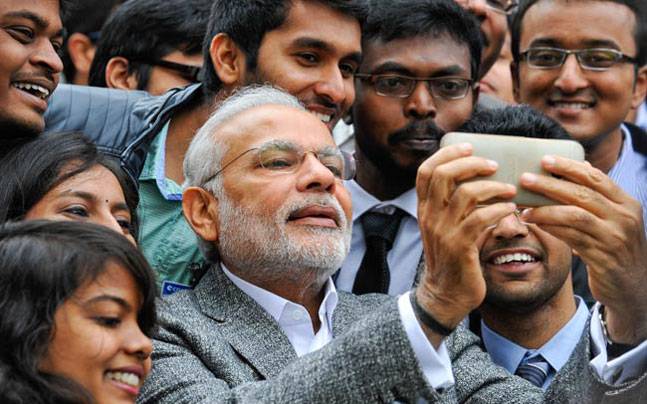The main cleavage in practising politics today is not left versus right but open versus closed. In this model, attitudes towards social issues and globalism are more important than the conventional economic left–right issues: “open” voters tend to be socially liberal, multicultural and in favour of globalism, while “closed” voters are culturally conservative, opposed to immigration, and in favour of protectionism.
Indians traditionally believe in co-existence of diverse ways and means, and accordingly different political parties were formed in early post-independence days, depending on ideologies/openness professed and caste loyalties. Then, we used to have earnest discussions and debates on various issues important for the nation and the press would play a very important part in analysing, interpreting and conveying to the people and the govt. the relative developments and prescriptions. In all these the ideology of the intellectuals, journalists, editors and publications would be clearly evident. But over time, ideological fervour started waning and in recent times, especially in the wake of coalition politics with its own compulsions, a brand of politics, depending on opportunities and convenience, has emerged. Thus, ideological differences have lost meaning and the urge for obtaining or retaining political power and seat of govt. has attained priority.
Interestingly, similar regroupings happened with intellectuals and media too. Those, used to benefits, privileges and sinecures provided by erstwhile governments have started a motivated campaign against the reigning dispensation whereas the nationalists are pro-govt. Such consideration motivates the journalists too.
The desperate and concerted onslaught by the opposition, select intellectuals and the largely English media through stage managed highlighting of intolerance episodes, so called attack on Dalits and beef eaters/cow smugglers, criticism of OROP implementation, challenging authenticity of surgical strike, showing of unhappiness of soldiers and demonizing demonetisation and GST, failed to influence the voters. People realize that they pick stray incidents, colour them to their liking and create an issue where none really exists. Like the economy’s growth rate slowing down in the July-end quarter due to certain structural changes and the government’s clean-up act, even though it can’t be denied that they were necessary and that the government did not cringe from taking bold measures, was projected as spelling impending doomsday. The economy has revived since. Interestingly, this led to the loss of credibility not only for the liberal intellectual- journalists alone, but also for the political parties supported by this group. Barring TMC, BJD, JDU and Punjab Congress, apart from BJP. The remaining parties including other congress are facing political obliteration.
Good governance is how public institutions conduct public affairs and manage public resources. Governance is the process of decision-making and the process by which decisions are implemented. Under the Modi government, maximum emphasis and effort have been put on energizing the decision process and making it corruption free and transparent.
The concept of good governance centres on the responsibility of governments and governing bodies to meet the needs of the masses as opposed to select groups in society. This is important. In India, before the present government, focus was on select minorities to be favoured on the basis of religion or caste. Modi govt was the first to follow and push good governance and development for all sections irrespective of religion or caste.
At the rate, development work is progressing under the present dispensation, when India votes again in 2019, it will be a new India- 99% of the homes will have electricity, 90%, will have toilets, 87% will have cooking gas and each one of them will have bank accounts.
